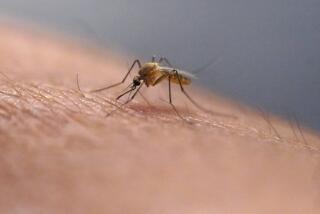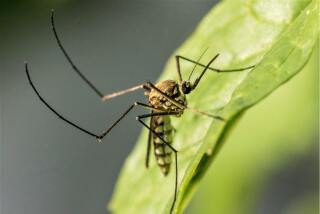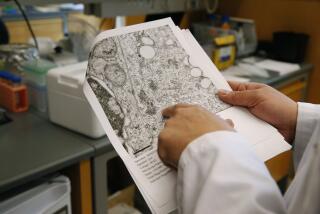Mysterious polio-like illnesses reported in some California children
A small number of children in California have come down with polio-like illnesses since 2012 -- suffering paralysis in one or more limbs and other symptoms -- and physicians and public health officials do not yet know why.
A virus may play a role, said Dr. Carol Glaser, leader of a California Department of Public Health team investigating the illnesses, which are occurring sporadically throughout the state.
The afflicted kids suffer severe weakness or paralysis, which strikes rapidly -- sometimes after a mild respiratory illness. Scans of the patients’ spinal cords show patterns of damage similar to that found in polio sufferers, Glaser said. Two of the affected children tested positive for enterovirus-68, a virus that is usually associated with respiratory illness but which has been linked to polio-like illnesses as well.
Dr. Keith Van Haren, a pediatric neurologist at Stanford University’s Lucile Packard Children’s Hospital who has worked with Glaser’s team, will present the cases of five of the children at the American Academy of Neurology’s upcoming annual meeting in Philadelphia.
All five patients had paralysis in one or more arms or legs that reached its full severity within two days, he said. None had recovered limb function after six months.
“We know definitively that it isn’t polio,” Van Haren added, noting that all had been vaccinated against that disease.
State health investigators have been tracking the new California cases closely since a physician first requested polio testing for a child with severe paralytic illness in the fall of 2012, Glaser said. She called that request “concerning,” because polio has been eradicated in the U.S., and the patient had not traveled abroad.
In the year that followed, Glaser’s team continued to hear about additional children with symptoms that could not be chalked up to known causes like West Nile virus or botulism. The median age of the children was 12 years. Glaser did not disclose the total number of illnesses; Van Haren said he was aware of around 20.
Berkeley resident Sofia Jarvis, 4, is one of Van Haren’s patients. The girl suffered paralysis in her left arm following a brief asthma-like illness in November 2012.
“She went to grab a toy, and mid-grasp her arm stopped working,” said mother Jessica Tomei.
Sofia did not test positive for an enterovirus, Tomei said. Her two older brothers have no signs of illness.
Glaser said that it was possible that children who tested negative still may have contracted their illnesses from viruses that couldn’t be detected because test samples were “not optimal.” She urged doctors to report new cases of acute paralysis so that investigators can attempt to figure out a possible cause.
“We want to hear from local public health jurisdictions and physicians who are seeing similar illnesses,” she said.
Van Haren said that most people who are infected by polio or viruses like it never develop symptoms, with only 1% developing neurologic complications like paralysis. Scientists do not know why certain people are affected so severely.
Twitter: @LATerynbrown
More to Read
Sign up for Essential California
The most important California stories and recommendations in your inbox every morning.
You may occasionally receive promotional content from the Los Angeles Times.











